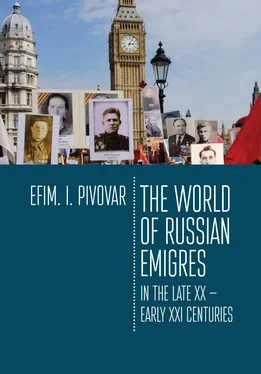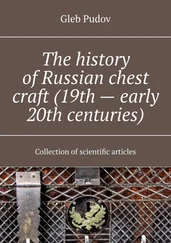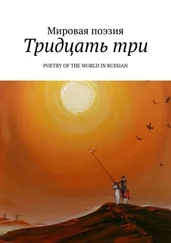In his address to the participants of the RMHS Founding Congress, President Vladimir Putin said, inter alia:
It is very nice that today, the work of similar organizations is being revived. As you know, we already have active Orthodox Palestinian Society, Russian Geographical Society, Russian Historical Society, and now we have Russian Military Historical Society as well. Many of you worked actively in these areas even before this Society was revived, and up to this day. Now, I will have the pleasure of fulfilling my honourable duty as head of state in presenting many of you with state decorations, certificates of merit for your practical labours in all these areas, which are highly important for our state. I am referring to your care for our military in search parties and archives, holding large-scale patriotic events – the awards recognize your efforts, your active civic patriotic positions. [23] Meeting of the President of the Russian Federation Vladimir Putin with Founding Congress of the Russian Military Historical Society participants (March 14, 2013). Retrieved from the official website of President of Russia http://www.kremlin.ru/events/president/news/17677
At the beginning of the 20 thcentury, the Imperial Russian Military Historical Society and the Imperial Russian Historical Society have taken an active part in museum, memorial, and publication work undertaken in Russia on the occasion of the centenary of the Patriotic War of 1812. Nowadays, a large-scale program of scientific and cultural events dedicated to the 200th anniversary of the Patriotic War of 1812 has united the Russian Historical Society, the Russian Military Historical Society, the Russian Society of Historical Archivists and a number of historical and memorial organizations both in Russia and abroad. Thus, today the idea of a single “chain of times” connecting different eras of the Russian history is indeed reflected in the activities of the RHS, RMHS, and RSHA, including in terms of their predecessors’ historical experience in the fields of science and education.
The organizational structure of the Russian Military-Historical Society comprises the Russian Cossack Mission in the USA, which coordinates the interaction between the RMHS with the World Cossack Association (WCA) and various corporate, museum and memorial organizations of the Cossack emigration, such as the Kuban Cossacks Corporation (New Jersey), the Cossack People’s Union (California). This includes joint commemorative events related to the history of Russian Cossacks and the return of Cossack relics and archives to their homeland. The Cossack People’s Union is officially a partner of the RMHS. In October 2015, Alexander Pevnev, the Ataman of the Kuban Cossacks in the USA, and Valery Annenkov, the RMHS Commissioner for Cossack Affairs in the USA, arrived in Novocherkassk to participate in the Fifth World Cossack Congress and brought with them the Icon of the New Martyrs of Russia, which was to be given to one of the churches in a village of Kaletvin province of the Rostov region as a gift from the emigrant Cossacks. The RMHS Commissioner for Cossack Affairs in the United States also managed to reach an agreement with the World Cossack Association regarding the transfer to Russia of a set of Cossack periodicals that were published in 1920s-1950s in Prague, Paris, and New York and have been maintained in WCA’s archives. As reported on the RMHS website, the head of the World Cossack Association Vasily Lyashko expressed his hope that ‘the transfer of Cossack magazines from the U. S. to Russia is one of the steps within the framework of the collaboration between the RMHS and the WCA on the basis of the previously adopted Treaty on joint activities of the RMHS and the WCA.’ [24] RMHS website. Retrieved from: http://histrf.ru/rvio/soobshestvo/post-2441
The Russian Cossack Mission in the USA is not only a participant, but also an organizer of the most important events of the Cossack community abroad. On January 7, 2016, for instance, a conference dedicated to one of the most significant events in Russian military history (the manifesto of Alexander I on the expulsion of Napoleon’s troops from Russia in 1812) was held in the premises of the Cossack museum and club “New Kuban” (New Jersey, USA) by the RMHS office in the USA. The conference timed to coincide with the Orthodox Christmas was attended by military historians and representatives of Cossack and other Russian American organizations. The ties with the Russian community living abroad are strengthened through the partnership between the RMHS, the Scouts Federation Galitskaya Rus and the Center for Development of Relations between the Autonomous Province of Bolzano and Russia n. a. Nadezhda Borodina.
Today, the Imperial Orthodox Palestinian Society is also a center for creative interaction between a wide range of scientific, cultural and educational personalities of Russia and the Russian world. In 1990, the International Conference on “Russia and Palestine: cultural and religious ties, past present and future” was held in Moscow, while a group of employees of the Russian Palestine Society of the USSR Academy of Sciences visited the Holy Land for the first time in quite a long time. These events marked the beginning of the revival of Orthodox pilgrimage that became one of key topics in the process of general ideological and socio-cultural transformation of the Russian society, and also in the context of a dialogue with Russian emigrants, who showed keen interest in events of church life in Russia and resumed visits to the Holy Land. The Imperial Orthodox Palestine Society (the IOPS) restored its historical name in 1992, having gained a wide popularity and public credibility, which subsequently contributed to the expansion of its multiple organizational, scientific and cultural ties with the Russian world, as well as with Russia-based organizations and agencies promoting cooperation with Russians living abroad. This process was promoted through Israeli authorities’ support to the activities of the IOPS as a whole and of its branches established in Jerusalem and Bethlehem in 2005. In 2008, the government of Israel made an official decision to transfer ownership of Sergey’s Courtyard, which housed the Jerusalem branch of the IOPS, to the Russian Federation. These events coincided with the final stage of canonical reunification between the Moscow Patriarchate and the Russian Orthodox Church Outside Russia, which gave additional impetus for the Russian emigration to get closer to Russian religious and cultural institutions abroad, including the IOPS structures.
The Jerusalem branch of the IOPS is essential for establishing and developing scientific interaction between Russian scientists (historians, orientalists, biblical scholars) and their Israeli counterparts, including those representing the Russian-speaking community in Israel. Representatives of the IOPS branch in Jerusalem collaborate with specialists from the University of Jerusalem and the Ben Zvi Institute conducting research on the history and culture of the Holy Land and Jerusalem, but also with those from the School of Tourism in Haifa and several other educational institutions where IOPS staff give lectures to professors and academic personnel.
Since 2014, the IOPS branch in Jerusalem has been continuously cooperating with the Israeli Ministry of Tourism, including through courses on “The Russian Trail in Jerusalem” for Israeli tour guides. The Sergius Readings named to honour the memory of Grand Duke Sergei Alexandrovich and dedicated to the history of the Holy Land, as well as the history of the IOPS itself are one of the forms of cultural and educational work of the IOPS Jerusalem branch. These lectures are a modern version of the Palestinian readings for pilgrims that the IOPS has been conducting before the Russian Revolution. Pilgrims, representatives of the Orthodox Church, scientists and artists from Israel, Russia, and the CIS countries take part in them, and as a result we can consider the Sergius Readings in Jerusalem as another platform for intellectual dialogue within the global system of the Russian world. For example, the Sergius Readings in February 2014 were attended by the participants of the 7th session of the Chief Editors Club of the CIS, Baltic States, and Georgia. [25] Pavel Platonov, Chairman of the Jerusalem branch of the IOPS: “Thanks to IPPO’s activities, Russia’s international standing is enhanced.” Retrieved from The Imperial Orthodox Palestine Society. The Jerusalem branch website. http://jerusalem-ippo.org/smi/in/io/20_09
Читать дальше












